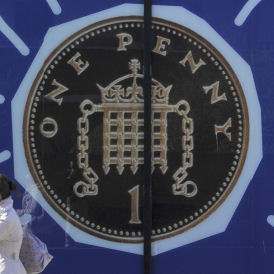Britain will not ‘bankroll’ Portugal, says Osborne
 Siobhan Kennedy
Washington Correspondent
Siobhan Kennedy
Washington Correspondent
Britain will not pay a penny more than its legal obligations to help bail out Portugal, George Osborne stresses, as finance ministers meet in Budapest to thrash out a rescue package.

Under a deal struck by the former Chancellor Alistair Darling, Britain is legally obliged to guarantee about £4 billion worth of loans to Portugal, based on an overall bailout package worth about 80 billion euros.
But George Osborne bent over backwards to stress it was unlikely Britain would ever be made to actually part with any money because it would mean Portugal had defaulted on all its loan repayments – an extremely unlikely scenario.
He said: “It is a very, very unlikely that Portugal fails to pay the European Union, that the European Union fails to have enough money in its own budget and turns to countries like Britain and France to cough up money in that situation. That is a very theoretical risk.”
It is very unlikely…that the European Union fails to have enough money in its own budget and turns to countries like Britain. Chancellor George Osborne.
He also stressed there would be no additional direct loans to Portugal, as had been issued to Ireland when it was forced to seek a bail-out earlier this year.
“I made it clear that, unlike the Irish case, the UK will not be making a bilateral loan to Portugal – British taxpayers’ money will not be lent directly to Portugal,” he said.
Reassurance
Mr Osborne is desperate to reassure the public that none of their hard-earned money will be spent bailing out a nation tucked away in Southern Europe when they are suffering deep cuts and austerity measures at home.
Under a now controversial deal struck last year by the then Chancellor Alistair Darling, Britain signed up to two strands of a three-part European bail-out facility. Britain is not liable to pay into the biggest part of the fund – a rescue pot worth more than 400 billion euros. But it does have commitments under a second, smaller European Union fund, worth 60 billion euros and also under a separate pot controlled by the International Monetary Fund.
Read more in the Channel 4 News Special Report on the economic crisis
Mr Darling has always said that because there was technically no elected government the weekend he was forced to represent Britain and broker its part in the deal, that he consulted with Mr Osborne to ensure he had cross-party consensus before signing on the dotted line.
But Mr Osborne denies he was ever in agreement with the plan. Regardless of the tit-for-tat, Britain now has to pay its way, although technically, Mr Osborne’s right in that the UK would only actually have to hand over any real money if Portugal defaulted on all of its loan repayments. And that is an extremely unlikely scenario given Europe is now rallying to its rescue.
But just in case any more countries go the same way as Portugal, Mr Osborne said he had ensured that Britain will not be part of the permanent fund that replaces the three existing pots as of 2013.
The problem is, if any other countries fall over, it is likely to happen way before then.